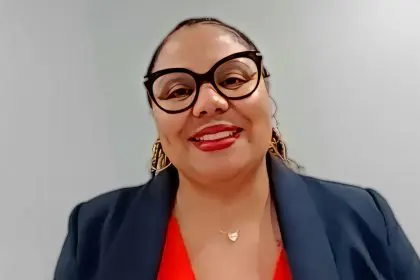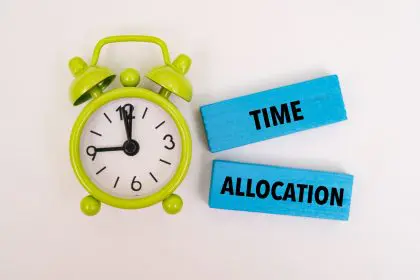Libraries across the United States have implemented comprehensive summer reading programs designed to prevent the significant learning losses that can occur during summer months, when students typically lose 20-50% of their school-year gains in reading and mathematics. The Collaborative Summer Library Program has established “Color Our World” as the 2025 theme, emphasizing art and creativity to inspire participants across all age groups through artistic expression and cultural engagement.
The 15 major library systems participating in these programs represent diverse metropolitan areas and serve millions of patrons through innovative approaches that combine traditional reading challenges with digital resources, cultural programming, and community partnerships. These institutions have developed sophisticated tracking systems and reward structures to maintain engagement throughout the summer period.
Comprehensive programming addresses diverse community needs
The New York Public Library’s Summer Reading Adventure operates from June 1 to August 31, partnering with the National Book Foundation to create activities spanning all age groups. Participants collect activity cards at branches throughout the Bronx, Manhattan, and Staten Island, completing challenges that include reading diverse genres and attending library-sponsored events.
The Los Angeles Public Library’s “Summer With the Library” program runs from June 1 to August 1, encouraging participants to track reading time of one hour per week or attend programming events using either game boards or the Beanstack digital application. The completion of three weeks of activities qualifies participants for prize drawings including VISA gift cards.
Chicago Public Library engages participants through reading challenges tracked via Beanstack digital platform, with earned badges and prizes including free books and museum passes. The program emphasizes STEAM workshops, storytelling festivals, and music performances that frequently highlight the city’s African American cultural heritage through local author events and community celebrations.
Digital integration enhances accessibility and engagement
Most participating libraries have adopted digital tracking systems such as Beanstack or ReadSquared to monitor participant progress and distribute rewards efficiently. These platforms allow participants to log reading minutes, completed activities, and program attendance while earning virtual badges that can be converted into physical prizes.
The Boston Public Library utilizes bingo card formats tailored for children, teens, and adults, featuring challenges such as reading graphic novels or visiting new library branches. Participants who complete their cards receive tote bags, while the BPL Fund’s Summer Readathon allows participants to raise funds for youth programming initiatives.
Houston Public Library employs a point system where participants earn five points for every five minutes of reading or completed activity, with 600 points unlocking prizes including books and gift cards. This quantified approach provides clear goals while accommodating different reading speeds and engagement preferences among participants.
Cultural programming celebrates community diversity
Many library systems have incorporated cultural programming that celebrates the heritage and contributions of diverse communities, particularly African American culture and history. These programs include jazz performances, author talks, storytelling sessions, and workshops focused on African American history and cultural traditions.
The Philadelphia Free Library hosts African American history workshops alongside science experiments and traditional storytimes, with branches featuring local artist showcases that highlight community talent. Miami-Dade Public Library System includes African American storytelling sessions among their art classes and music performances.
San Francisco Public Library emphasizes inclusivity through events such as African American storytelling nights, while King County Library System in Seattle incorporates African American dance performances among their STEAM workshops and cultural programming offerings.
Partnership strategies expand program reach and resources
Several library systems have developed strategic partnerships with local organizations to enhance program offerings and increase community engagement. Montgomery County Public Libraries partners with Levine Music and Olney Theatre to promote arts accessibility, while incorporating live music and art activities into kickoff events.
The New York Public Library collaborates with Roundabout Theatre to provide theater workshops and hosts James Baldwin centennial celebrations with book giveaways and exhibitions. These partnerships leverage existing community resources while providing specialized programming that individual libraries might not be able to offer independently.
Los Angeles Public Library’s partnership with Explore L.A. provides museum pass reservations, expanding educational opportunities beyond traditional library resources while encouraging families to engage with broader cultural institutions throughout the metropolitan area.
Technology integration supports modern learning preferences
Libraries have extensively integrated digital resources including e-books, audiobooks, and streaming educational content to accommodate contemporary learning preferences and device usage patterns. These digital collections are accessible through dedicated mobile applications and library websites, providing 24-hour access to programming resources.
Brooklyn Public Library provides e-books and digital magazines through Libby application, while Columbus Metropolitan Library offers Hoopla access for digital content consumption. King County Library System includes Kanopy streaming service for educational videos, expanding beyond traditional text-based resources.
These digital resources ensure that program participation can continue regardless of physical library access limitations, while accommodating families who prefer digital content consumption or have limited transportation options for regular library visits.
Reward systems motivate sustained participation
Library systems have developed sophisticated reward structures designed to maintain participant engagement throughout the summer programming period. These systems typically combine immediate gratification through weekly prizes with larger incentives for program completion.
Dallas Public Library rewards daily reading goals of 20 minutes with free books and raffle entries for larger prizes including electronic tablets. Hillsborough County Public Library Cooperative offers progressive rewards including tote bags, books, and technology items such as AirPods for sustained participation.
The reward systems balance accessibility with motivation, ensuring that participants from various economic backgrounds can achieve success while maintaining incentives for continued engagement throughout the extended summer programming period.
Community engagement extends beyond individual participation
Many programs incorporate community engagement elements that encourage participants to share experiences and connect with other families participating in summer programming. Hillsborough County Public Library Cooperative invites participants to share “summer library stories” through photographs, creating community connections and program visibility.
Queens Public Library reflects the borough’s diversity through programming that specifically engages various ethnic communities, including African American populations, through culturally relevant book clubs and performance events that celebrate community heritage and contemporary experiences.
These community engagement strategies transform individual reading activities into shared cultural experiences that strengthen neighborhood connections while promoting library resources and programming to broader community audiences.
Professional development supports program excellence
Library staff participate in ongoing professional development to ensure program quality and cultural competency in serving diverse communities. This training encompasses digital platform management, cultural programming development, and community engagement strategies that enhance program effectiveness.
The emphasis on cultural competency ensures that programming appropriately serves African American communities and other demographic groups through relevant content selection, respectful presentation approaches, and inclusive programming that acknowledges community contributions and contemporary experiences.
Staff development also addresses technology integration challenges, ensuring that library personnel can effectively support participants using digital tracking systems and accessing electronic resources that are integral to contemporary summer programming approaches.
Assessment and adaptation ensure program effectiveness
Library systems continuously evaluate program effectiveness through participation statistics, community feedback, and learning outcome assessments that inform future programming decisions. This data-driven approach enables programs to adapt to changing community needs and technological capabilities.
The tracking systems used for participant engagement also provide valuable data about program elements that generate highest participation rates, most effective reward structures, and community programming preferences that can inform future summer program development.
This continuous improvement approach ensures that summer reading programs remain relevant and effective in combating learning loss while serving diverse community populations through programming that reflects contemporary educational research and community engagement best practices.
The comprehensive summer reading programs implemented by major library systems demonstrate institutional commitment to preventing educational learning loss while celebrating community diversity and promoting lifelong learning habits through innovative programming approaches that combine traditional reading promotion with contemporary technology integration and cultural celebration.















